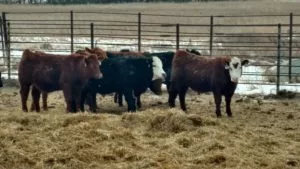
(ND Ag Connection) – By Scout Nelson
In 2025, North Dakota is poised to reassess its stance on livestock industry regulations. The state Legislature is set to deliberate on recommendations that could alter the distances large livestock operations are required to maintain from homes, businesses, and schools. This initiative follows a task force’s suggestions aimed at making the state a more attractive location for the livestock sector while considering local community standards.
A key figure in these discussions, Agriculture Commissioner Doug Goehring, highlighted that while the proposed rules would ease some current restrictions, they would remain stringent compared to those in neighboring states. One innovative approach under consideration involves an “odor modeling tool” which utilizes data from various weather stations to help determine if existing setbacks are adequate or if a variance might be necessary.
This tool would allow counties to make informed decisions about the placement of feedlots relative to community areas, potentially reducing the standard setback distance by up to a quarter mile in most cases. Such adjustments are being scrutinized due to the potential environmental impacts of concentrated animal feeding operations (CAFOs), particularly concerning air and water quality.
The push for relaxed regulations is partly driven by the desire to boost employment in smaller communities through expanded livestock operations. However, Aaron Birst, Executive Director of the North Dakota Association of Counties, expressed that while there is recognition of the need for economic development, it must not compromise the quality of life in local communities.
This sentiment echoes wider concerns that economic benefits promoted by proponents of large livestock sites may not be as significant as suggested.
In 2023, similar discussions occurred when the Legislature adjusted corporate farm regulations. This ongoing debate reflects a broader challenge of balancing economic development with environmental stewardship and community well-being.
As the state moves forward, the effectiveness of proposed legislative changes will largely depend on achieving a consensus that respects both the growth aspirations of the livestock industry and the values of North Dakota communities.
This legislative session will be crucial in setting the trajectory for how the state manages its agricultural developments in relation to community health and environmental integrity.
